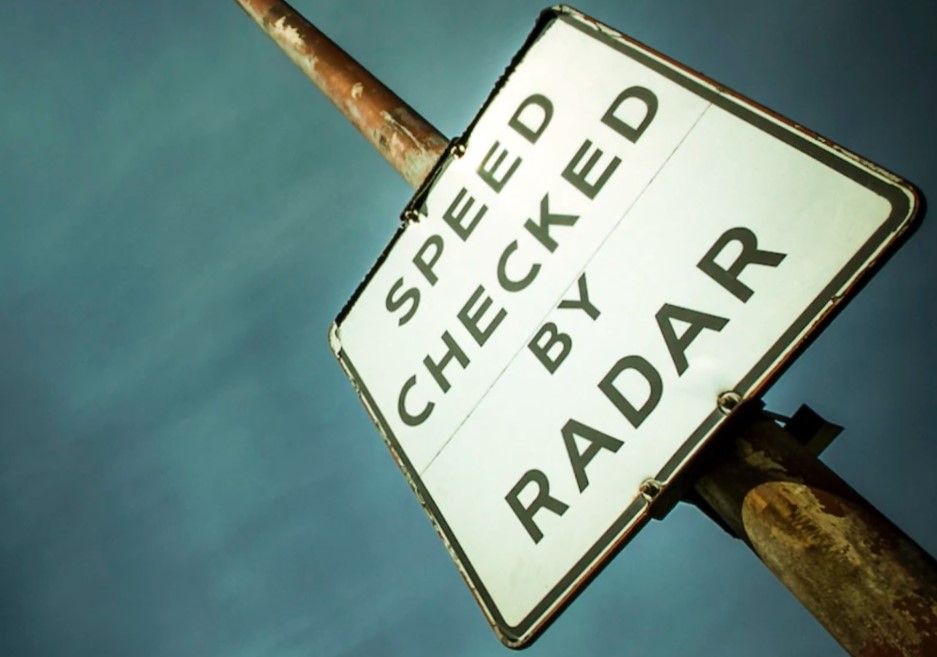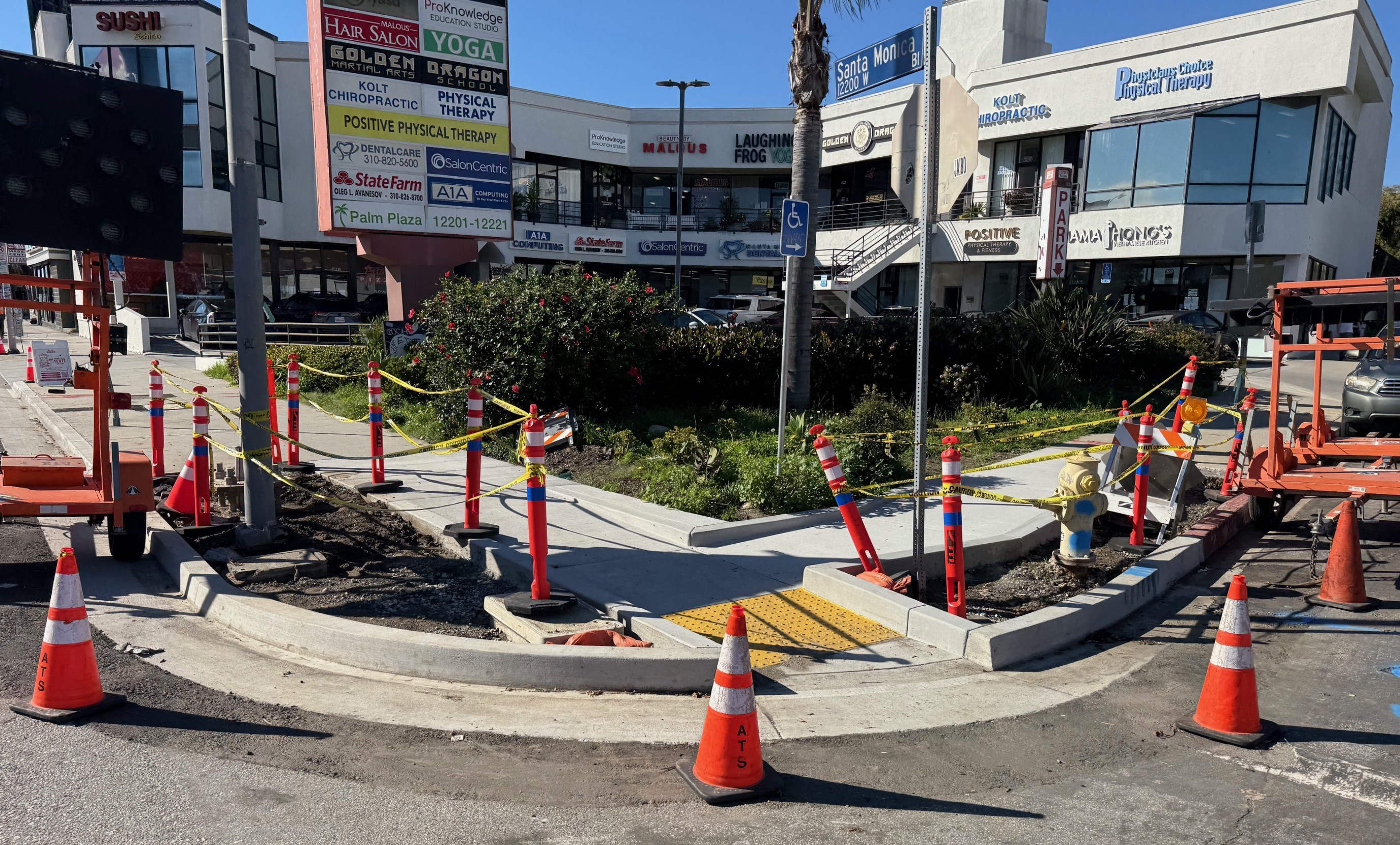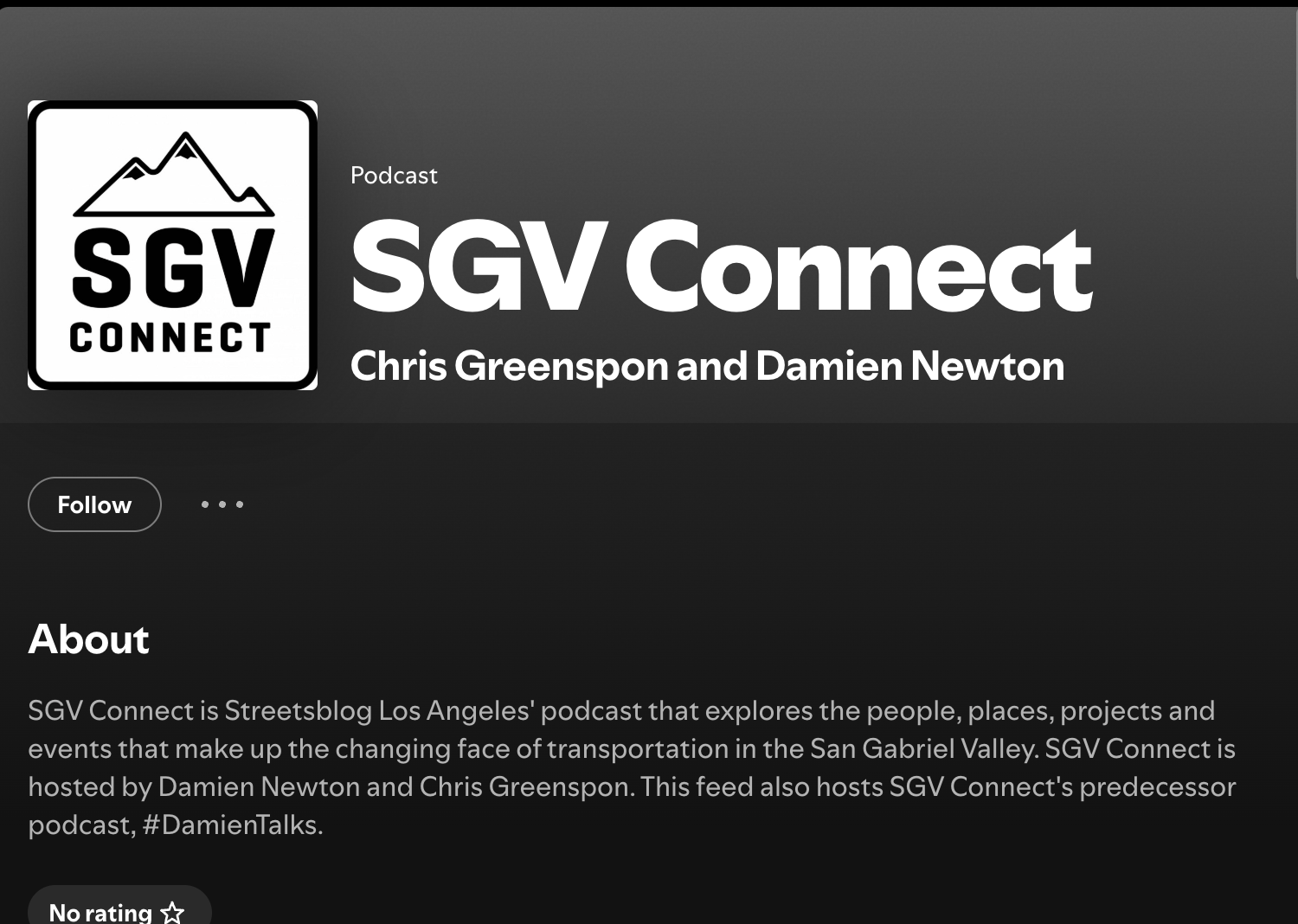 It won't be separated as this BRT in the PRC, but it will be nice. Photo:我爱铰接巴士/Flickr
It won't be separated as this BRT in the PRC, but it will be nice. Photo:我爱铰接巴士/FlickrSometimes I enjoy having dinner at the Wilshire/Western Denny's for the
opportunity it affords to watch the amazing dynamic transit action
occurring at that intersection. This includes frequent and very busy
bus lines (local and Rapid) along both streets plus hoards of people
entering and exiting the rail station. It reminds me how tremendously
heavy transit use in the Wilshire corridor is. And partially
explains why a Wilshire Bus Rapid Transit Project has been in gestation
and has now reached the draft Environmental Impact Report/Environmental
Assessment stage.
Next week Metro is holding four public hearings on the proposed Wilshire BRT project. Details on time and place are below. But
please
indulge me as I lay out some of the history behind it all. I hope you
are comfortable because it takes a fair amount of exposition to
sketch out, stretches back decades and includes a mind-boggling number
of zigs and zags to where things stand now. But trust me, I have a
purpose in laying out the highlights of how we came to this point and
the significance of the project. And yes despite the several lengthy
paragraphs of history that follow this is just the cliff notes version
of what has happened. Which is sort of a scary thought in itself.
Improving
transit service in the Wilshire corridor has been a regional goal since
at least the 1970s. Originally the hope was for it to have mass
transit. In fact the original subway alignment was to run along
Wilshire as far west as Fairfax. Then in 1985 a methane explosion
occurred in the basement of the Ross Dress for Less near the Farmer's
Market. This provided the pretext for subway opponents in the Miracle
Mile and Hancock Park areas to champion a ban of federal funds being
used in what was dubbed the "methane zone" along Wilshire essentially
between Crenshaw and Fairfax. The subway instead was re-routed along
Vermont and Hollywood Blvd. with a stub west on Wilshire ending at
Western.
But plans started to move forward for a western
extension of the Red Line that skirted the methane zone by
being diverted south of Wilshire to Pico/San Vicente. Ironically this
effort was stymied by the discovery that it entailed tunneling through
an area saturated with hydrogen sulfate, a very lethal gas. By the late
90s the infamous Hollywood Blvd. sinkhole and other controversies led
to a cancellation of plans for subway extensions east and west.
Eventually the federal Full Funding Grant Agreement for the eastern
extension was converted to the funding of a light rail project, the
Gold Line eastern extension that opened last year.
In 2000 a
pilot Metro Rapid route (line 720) began operating along Wilshire with
hopes to eventually upgrade it to BRT as a substitute for the now
cancelled subway extension. In the same period planning began of the
Exposition light rail project. By 2004 with funds tight the Metro Board
siphoned money from the Wilshire project to keep Exposition on track.
But Wilshire BRT stayed alive as that same year a demonstration project
was commenced of peak hour bus lanes along a one mile stretch of the
Boulevard between Centinella and Federal. Metro staff concluded the
"demonstration project resulted in a 14 percent bus speed improvement
and up to a 32 percent improvement in bus schedule reliability." By
late 2006 studies were underway for bus lanes along the entire length
of Wilshire. Bowing to NIMBY pressure the L.A. City Council in August
2007 "temporarily" suspended the demonstration until the one-mile
segment could be integrated into a larger bus lane project.
Meanwhile
the feds responding to the success of Metro Rapid and similar projects
created a new category of funding to encourage BRT type projects. In
September 2007 Metro and the City of Los Angeles submitted a “very
small starts” application for Wilshire BRT which was approved. After a
slow process the project has now reached the stage of draft
environmental documents being ready for public comment.
A statement I helped draft that Southern California Transit Advocates presented at the May 8, 2010 Special Metro Board meeting included among its bullet points:
Wehope L.A. Mayor Villaraigosa will monitor the progress of theimplementation of the Wilshire bus lanes to ensure it is doneexpeditious and does not get bogged down in LADOT’s lamentable footdragging that had un-necessarily delayed this project for nearly half adecade.
The
Mayor's Office has been very supportive of the project and I am hopeful
they will assist in not allowing LADOT 1950s traffic engineering myopia
continue to stall it.
And I will note one key group of
stakeholders who have helped keep the project alive has been the Bus
Riders Union, which has long championed Wilshire BRT via letters of
support and appearances at key meetings.
The hearings will be held:
Monday, June 21, 6pm-8pm
Westwood Presbyterian Church
10822 Wilshire Bl
Tuesday, June 22, 6pm-8pm
Good Samaritan Hospital -- Moseley Salvatori Conference Center
637 Lucas Ave.
Tuesday, June 29, 2pm-4pm
Wilshire United Methodist Church
4350 Wilshire Bl
Wednesday, June 30, 6pm-8pm
Felicia Mahood Center
11338 Santa Monica Bl
The
key electeds whose support is crucial to the project going forward are
L.A. city council members Paul Koretz, Bill Rosendahl, Herb Wesson, Tom
Labonge and Ed Reyes. Contact information for them is on the city
website.
If any
of them are your councilmember and you support the project, let them
know where you stand. While a handful of vocal NIMBYs have been opposed
to the project most comments Metro has received to date have been
positive so the prospects are good if the electeds and LADOT are made
aware of the overall positive response that they will get onboard to
allow it to go forward.
The project matters for practical and
symbolic reasons. Having dedicated bus lanes will allow service to be
faster and more reliable. And by dedicating lanes during peak hours
exclusively to buses along such a prominent street our region will send
the message that transit as a priority is no longer getting only lip
service.
Metro's 1995 Long Range Transportation Plan
included 101 miles of arterial dedicated bus lanes among its strategies
to improve mobility in the region. No map of this network was ever
released but you have to imagine it would have included Wilshire. Of
course it never happened. Here we are 15 years later finally on the
cusp of the beginnings of such a network.
Yes, it is
disappointing the initial implementation will not include the portions
of Wilshire that run through Santa Monica and Beverly Hills. But I
believe the success of the lanes will help get those two cities
eventually on board. We have to start somewhere and the current project
is closer to actually happening than any of the previous efforts. And I
say it is the right idea on the right street and needs to go forward
without delay. With a good positive turnout at the hearings that will
happen. The history I've laid out makes clear approval isn't a
slamdunk. But I think it is a very hopeful situation as long as voices
of reason dominate the discussion. Let your voice be heard.






